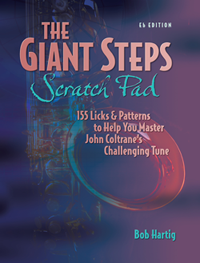(Continued from part 3.)
Writing this article has opened my eyes to just how immense a legacy my dad left me when he put his alto sax in my hands as a boy. I never intended to pen a lengthy, multi-part personal history, just a brief tribute to Dad and the shaping force his old Conn 6M has been for me. Now, four parts into “My Father’s Horn,” I realize that I could write a book and still not tell the full story. But writing a book was not, and is not, my intention. I see a need to condense, to say much in few words.
Yet I am not sure how to do that. Dad’s horn has been as pervasive an influence in my life as yeast in bread dough. It has been a source of tremendous satisfaction and great frustration; a creative outlet; an intellectual challenge and stimulus; a doorway of faith; a parable portraying truths about God’s kingdom and how He designs individuals; a song of joy, a wail of pain, a voice of my soul; a catalyst for insight, choices, and growth; a blessing to many listeners and, first and foremost, to the player; a gift, a discipline, and most certainly, a calling.
When I was 24 and playing in the Aquinas College Jazz Band, I got a call one evening from a guy named Rick Callier. Would I care to play in a musical that the Bethel Pentecostal Choir was presenting called “The Beautiful Story of Jesus”?
I learned that Rick’s cousin, Kimball Owens, had recommended me to Rick. Kimball was my buddy in the jazz band–a non-stop chatterbox, funny, super-likeable, a fine tenor sax player, and my friend. I knew nothing about either Rick or Bethel, but, while I wasn’t a Christian, I had grown up knowing about Jesus and was glad for an opportunity to offer my talent in His service for an evening.
That event was my introduction to Rick, to Bethel, and to a number of talented black gospel musicians and vocalists: David Jennings, Chico DeBarge, James Abney, Craig Tyson … the list goes on, too many to name. Even more important, playing for the Bethel musical ushered me into the beginning of my walk as a disciple of Jesus.*
Back in the 1980s, white churches in West Michigan didn’t have much use for the saxophone. Not so black churches. I knew nothing about the foibles of religious culture and cared even less about racial distinctions. All I knew was, I had fallen in with some people who loved Jesus, loved music, projected joy, and welcomed me and my horn wholeheartedly. And my heart was open. I had been seeking God for a long time, searching for meaning; searching for something bigger even than the music; searching for Life. And I found it. Or rather, I found Him–because throughout the years, He had already long been seeking me.
Thus it was that a few days after Christmas in December, 1980, I was baptized at Bethel Pentecostal Church. On that day, I had an encounter with God. It was, as best I can describe it, a sense of being overwhelmed by joy and praise. The experience was almost physical in nature and one I have never forgotten.
From there, I played often with the Bethel Pentecostal Choir. As a white kid from a German family, I was a salt grain in a pepper mill, but it didn’t matter. Love of the Lord and of music made ethnic differences something to be appreciated and enjoyed, and a source of insight.
At that time, I also joined the horn section of a gospel group called God’s Family Band. The band was co-led by Rick Callier and David Jennings, with Rick doing the arranging and David working with the vocalists. Both of these guys were incredibly talented. In partnership with a friend named Larry Rhodes, Rick also used the horns in studio sessions for other gospel artists, notably the Grammy-Award-winning group Commissioned. It was under Rick and Larry that I gained experience both as a horn section player and as a studio musician. I’ve never played for more exacting producers. They would do take after take, striving for perfection. Rick and Larry set a benchmark for excellence. Working with producers of their caliber was an eye-opening, rewarding, and hugely valuable experience.
All the while, I continued to study music at Aquinas College and play in the jazz band. My college education equipped me with the tools I needed to grow as a musician. To be honest, though, I wasted my first years in college, and I only really began to learn my horn after I got out of school. As a result, I’m mostly self-educated as a jazz saxophonist.
One influence from my college days to whom I will always feel a debt of gratitude was Mel Dalton. A wonderful Grand Rapids area tenor player, Mel was the closest thing I ever had to a musical mentor. For a brief but memorable semester or two, I use to get together with him on a weekly basis at his home. Mel didn’t exactly teach me how to play jazz; mostly what he did was spend time with me listening to Coltrane records, talking about music, playing with me through solo transcriptions, and encouraging me. Mel modeled what jazz musicianship was about. He was a beautiful player and a warm, wonderful human being, and I wish he was still here today.
At this point, I need to fast-forward. There’s a lot of story I could tell, but it wouldn’t serve my original intent in writing this article. It’s enough to say that my father’s horn has opened up doors of relationships, opportunities, and experiences.
That’s enough for now. I’ll save the rest for part 5, which I think will be the conclusion of “My Father’s Horn.”
————————————
* I’m cautious about using the word “Christian” to describe myself. I am a Christian; however, these days the word has become a label freighted with meanings that have nothing to do with what it means to follow Jesus. The word “Christian” has become politicized. It has become a marketing niche. It has come to stand for a subculture that in some ways misrepresents what Jesus and Christianity are truly about. So I prefer to be thought of as simply a disciple of Jesus–a fallible man who seeks to know Him, love Him, and live in a way that reflects his Lordship in my heart.

